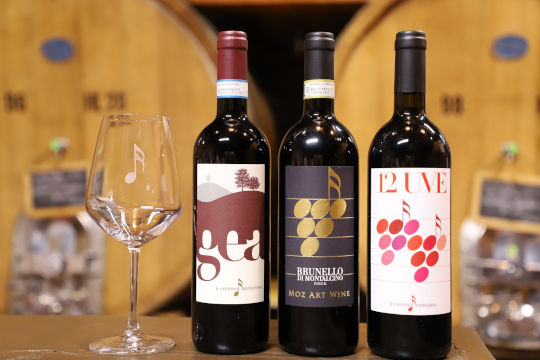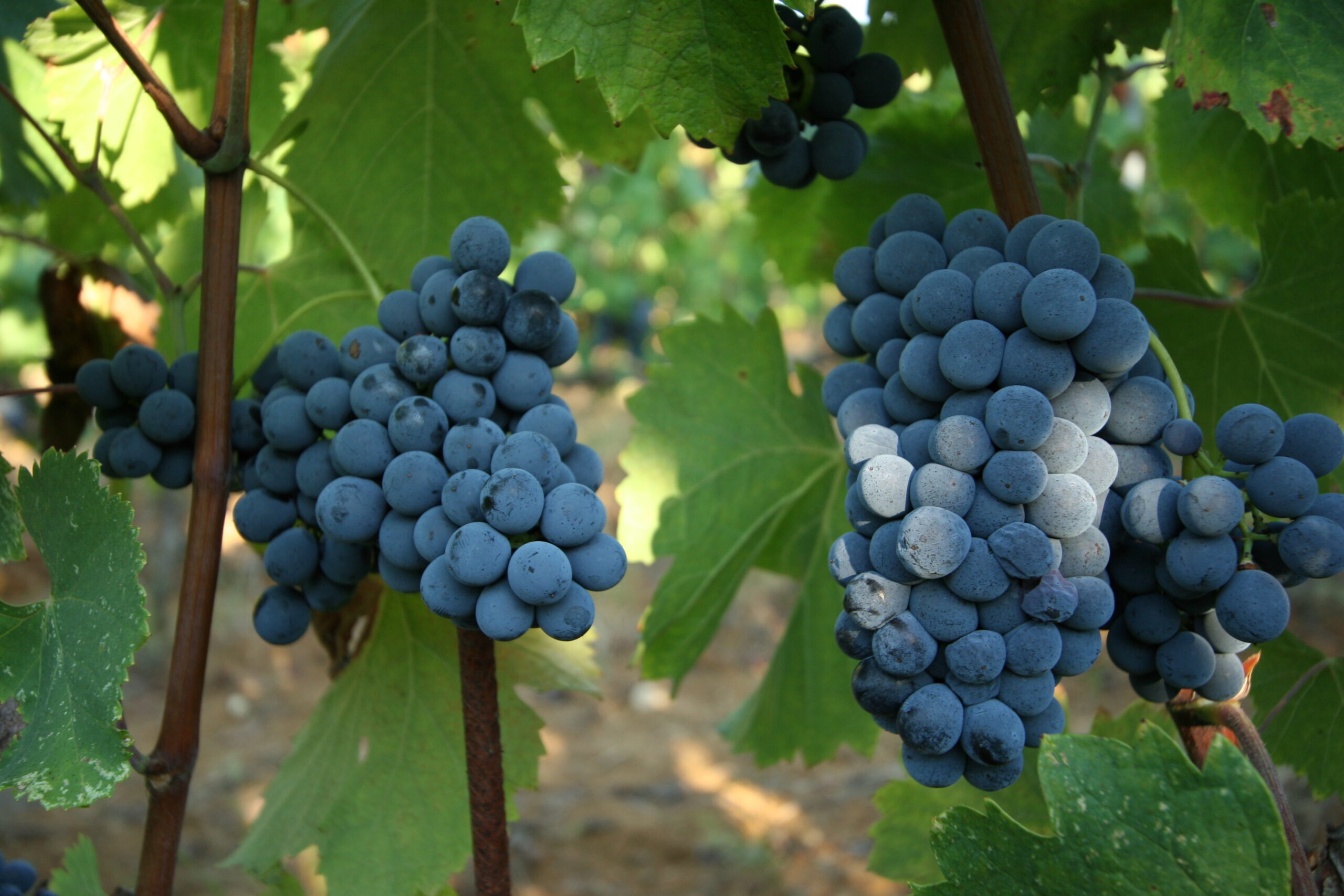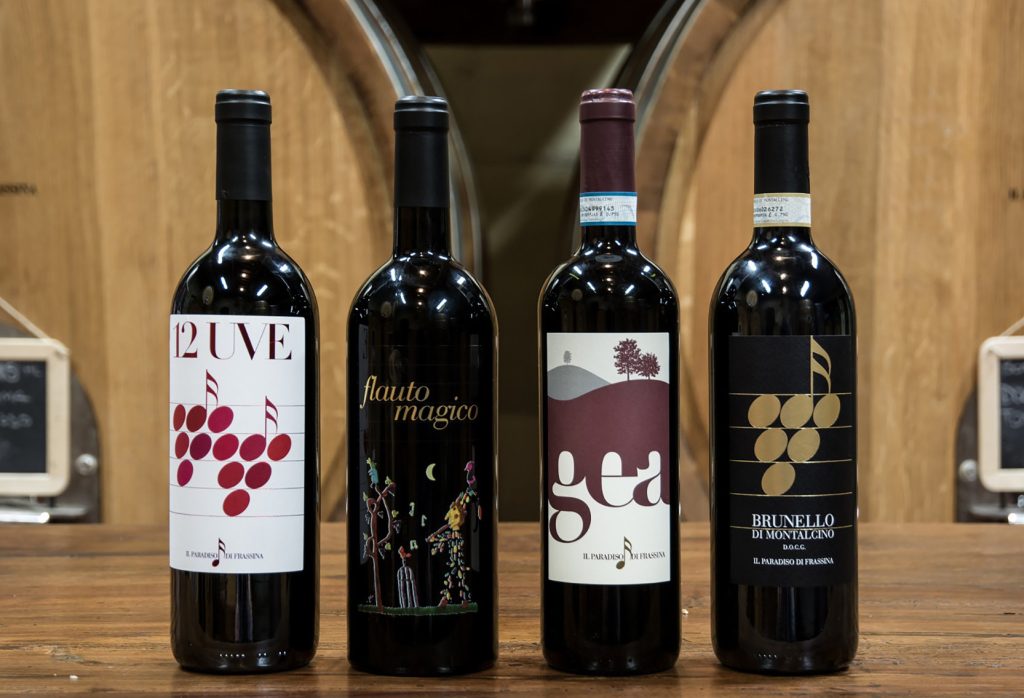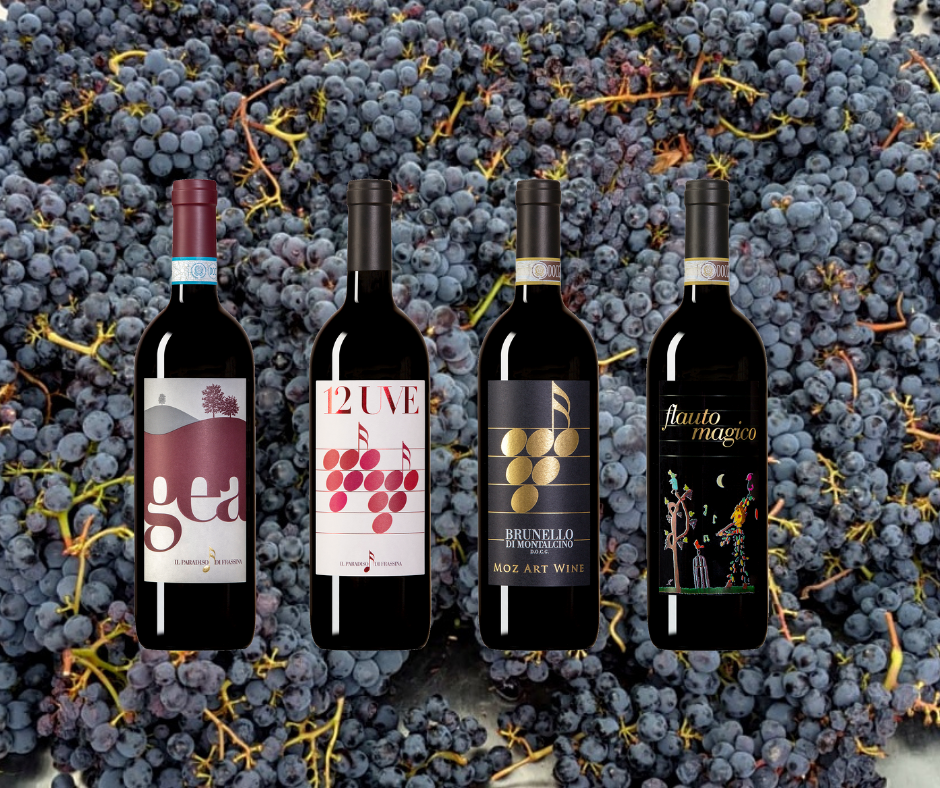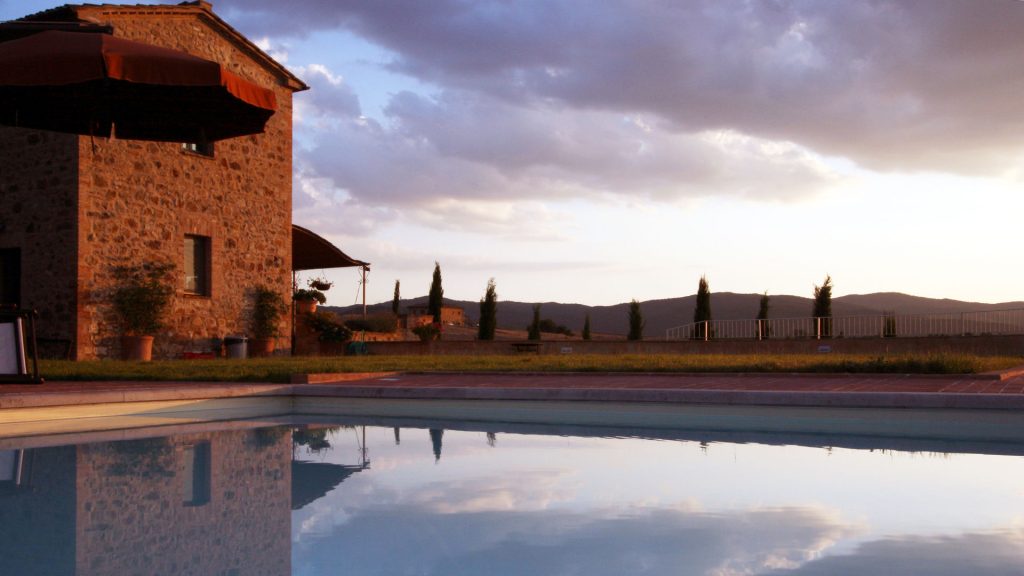Challenging heat and water shortage in the vineyard
The issue of global warming has never become so topical and so worrying as this year. Extreme heat and water shortage are causing serious environmental damages.
We are facing the difficulty of cultivating vines with excessive heat and lack of water, and for this reason we are adopting useful solutions to handle these problems, thanks to the use of natural products and to a specific management of the plant and of the ground.
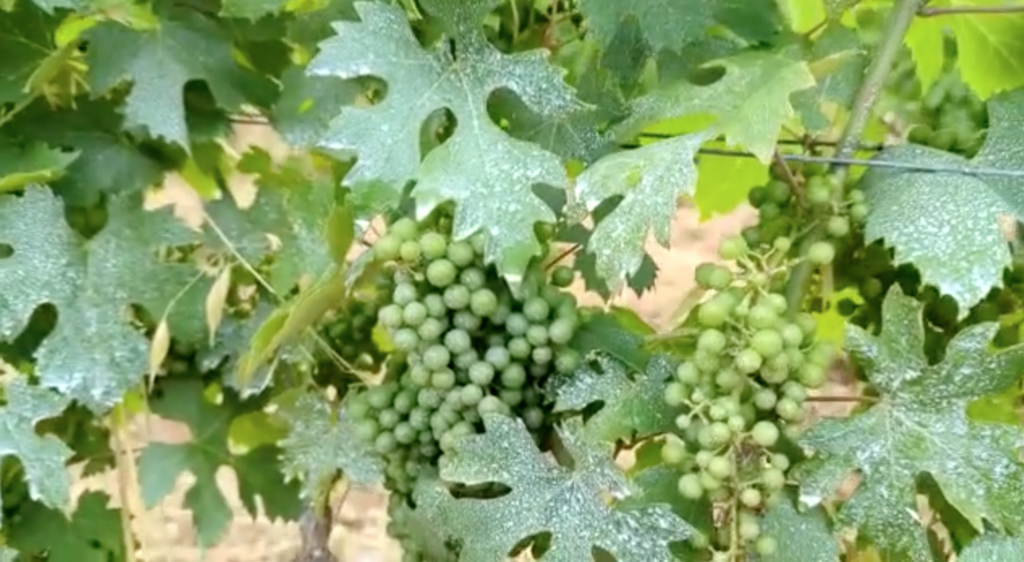
Professor Stefano Mancuso and his studies on plants and their role in countering with global warming
Il Paradiso di Frassina winery in Montalcino is known for its experiments on the beneficial effects of sound frequencies on vitis vinifera, with the collaboration of the team of Professor Stefano Mancuso of the Department of Plant Neurobiology of the University of Florence for the bio-physiological aspects.
Stefano Mancuso helped Carlo Cignozzi, the creator of the Mozart’s Vineyard, to explore this incredible scientific project of playing music to the vineyards.
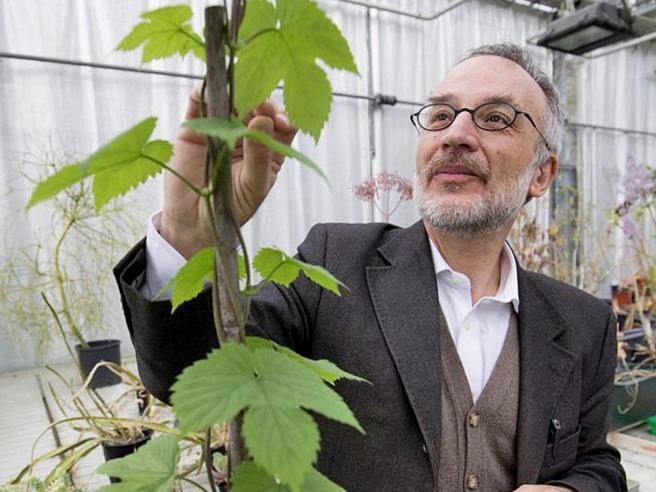
At Il Paradiso di Frassina, organic winery in Tuscany, the vine grows constantly accompanied by Mozart’s music, and here excellent wines are produced such as Il Flauto Magico, Brunello di Montalcino DOCG. Music is good for the vine and also for wine, which is produced without the use of harmful chemicals thanks to the beneficial power of music on plants.
Professor Stefano Mancuso, speaking about the problems of global warming, explains that “plants under stress are becoming smaller” because they defend themselves, “they shrink because they have to conserve water and consequently also nourishment”.
Mancuso teaches us how “plants will save us from global warming“ because “It is clear that plants are the concrete solution to the problem of global warming due to their ability to absorb carbon dioxide; it means that we have an extraordinary solution in hand, we must just make it clear how extraordinary it is. ”
Plants are in fact “intelligent organisms, with different capacities from ours, but not inferior”.
Solutions and treatments against extreme heat and lack of water
At Il Paradiso di Frassina we have decided to adopt a series of solutions and techniques that can help our vines against heat and drought.
The use of Kaolin
The use of kaolin is used to counteract excess heat and water shortage. Kaolin is a rock made up of a mineral called kaolinite that is present in nature in abundance, it is whitish in color and its main characteristics are to create a protective layer that reduces sunburn.
The white color not only reduces sunburn but prevents thermal stress, it is a product that we have been using a lot in recent years and especially this year as we are facing severe water stress.
We thus avoid giving sulfur or copper-based products that would stress the plants even more and so we use this natural product to preserve the plant from insects and fungi and to protect it also from sunburn, lowering the temperature inside the leaves and inside the bunches that are growing.

Management of vegetation, use of mushrooms, algae, and macerates of nettle and horsetail
In addition to the use of Kaolin, we have also adopted other techniques, also concerning how to manage vegetation.
This year we have not proceeded with the usual agronomic practices such as that of trimming the tops of shoots. In fact, we decided not to cut the vine shoots to avoid further stress on the plant. Cuts make the plant suffer, there is a loss of water and liquids. The shoots have been wrapped along the last wire so that they do not bother the passage of tractors and at the same time create a sort of shadow to the vegetation and the clusters below.
In addition, at least for now, we have decided not to proceed with the agronomic practices of removal of sterile shoots. The lateral shoots are sprouts that does not bear fruit and that grow opposite to the bunch, producing many leaves that create humidity, thus increasing the risk of disease.
Listening to plants to “understand what they need”
This year we decided to leave the side shoots to protect the plant as much as possible, so creating a little shade for the bunch.
Given the very little water, the incidence of diseases was very low this year, and therefore we completely avoided using sulfur throughout the season, replacing it with alternative products. In fact, the sulfur, which is used to fight vine diseases such as powdery mildew, tends to cause burns on the leaves because it reacts with the sun.
Since the sulfur was not necessary, we adapted to the situation of the plant and did not use it.
At the beginning of the season we instead used antagonistic mushrooms useful to fight and compete with the fungi that create powdery mildew and then we continued with macerated nettle and horsetail.
Horsetail releases silica flakes on the vegetation and therefore makes the surface rough so that the spore of the fungus finds it much more difficult to move on the plant and therefore to enter the stoma of the leaf.
There are therefore many measures that we have put in place to protect the plant as much as possible, not least the use of selected algae that are used to nourish the plant but also to combat thermal stress.
It is therefore a question of observing and listening to plants, and “understanding what they need”, to use the words of the great Professor Mancuso.

